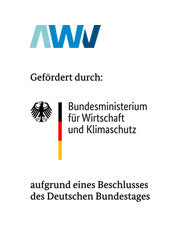The CoR calls for a European asylum system that allows more legal migration than before. Whether integration is successful, whether foreigners become accepted citizens strongly depends on neighbourhood and local communities. What kind of help does the CoR give local and regional authorities for supporting integration?
Mr. Markkula: We need to manage migration by getting out from the current fragmentation of approaches and strategies. We need to support more the measures for better working and living conditions in the regions of the migrants‘ origin. With regards to incoming flows, we need to stop the ongoing race to the bottom in which national governments use criteria and procedures to discourage asylum-seekers and economic migrants. At the same time, we need to tackle the absence of clear and shared mechanisms to manage legal migration, also in light of the increasing need for skilled migrant workers, who are vital to make our economies and societies run.
For these reasons, EU regions and cities want the European Union to reform its asylum system thoroughly by establishing clearer routes for legal migration and focussing more sharply on the integration of newcomers. Such reforms should ensure that EU institutions and national governments work closely with the regions and cities. In particular, local and regional leaders from all across the EU agreed that integration has to be considered in every aspect of migration policy, and the sooner in the process we promote integration, the better for our cities and for newcomers themselves.
Who is better than my colleague Vincenzo Bianco, the Mayor of Catania in Sicily, to explain why Europe needs a better Asylum Policy? Who is better than my colleague Karl Vanlouwe, a member of the Flemish parliament here in Belgium, to explain why we need better integration policies? And who is better than my colleague Olgierd Geblewicz, Marshal of West Pomerania Region of Poland, to explain why we need a better legal migration policy? This shows why our Members are a unique asset for the EU, not just for the CoR.
Furthermore, we provide local and regional administrators an opportunity to learn from each other in this field, to get to know the best projects developed to integrate migrants and their families, train migrant workers, develop their skills and support their entrepreneurial capacity. In this perspective, we are not only a ‘policy lab‘ and a political forum, where legislative proposals are assessed and improved in the light of regions and cities operational experiences. We also provide a unique platform to spread innovative ideas and approaches, to learn how to use EU funding opportunities in this domain better as well as to strengthen the cooperation among regions and cities, including in strategic cross-border areas.
Digitalization is one of the major issues nowadays. It seems urban areas accelerate digitalization while rural regions often can hardly keep up. To what extent could the conditions for digitization – especially for rural regions – be designed and improved at EU level?
Mr. Markkula: Addressing the digital and innovation divide between EU regions has been a key priority of my presidency during these two and half years. The economic and social benefits of the digital revolution will only be fully exploited when very high-capacity networks reach all citizens over the EU territory. However, in rural and sparsely populated areas the lack of profitability is often a barrier to market-driven development, which means that public sector participation is needed.
EU funds are crucial not only for their direct contribution to the financing of broadband infrastructure, but also for the leverage effect they play in attracting investments from other sources, including private ones. We welcome the establishment of the Connecting Europe Broadband Fund, which should raise at least € 500 million through commitments from private and public investors. Collaboration with and between local and regional authorities is also needed, in particular for resolving the so called ‚last mile’ problem, which causes inconveniences for citizens in rural areas. This is why we are – together with the European Commission – setting up a Participatory Broadband Platform, where our members from all around Europe will discuss policy and technology choices, share their best practises and evaluate progress in implementing national broadband plans. One of my last meetings as President of the CoR was to hand this over to Mariya Gabriel, the new Bulgarian Commissioner for Digital Economy & Society.
Zurück zu Seite 1 | Zurück zu Seite 2 | Seite 3 | Weiter zu Seite 4

